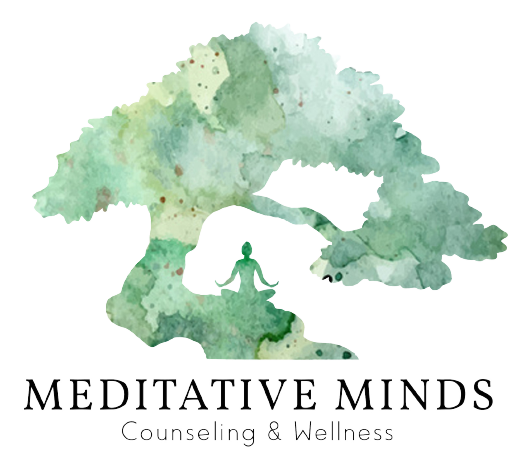In Simi Valley, individual therapy offers a valuable opportunity to explore and enhance self-care strategies. This approach not only helps individuals manage their mental health but also empowers them to integrate effective self-care routines into their daily lives. Here are several self-care strategies that individual therapy can support:
Mindfulness and Stress Reduction
Therapists in Simi Valley often incorporate mindfulness techniques into individual therapy. These practices, such as meditation and deep breathing exercises, can significantly reduce stress and improve overall well-being. By learning how to stay present and manage stress through therapy, individuals can create a more balanced and peaceful life.
Therapists in Simi Valley can integrate mindfulness techniques into individual therapy sessions based on clients’ needs and preferences. Sessions may include guided mindfulness exercises, discussions on the application of mindfulness in daily life, and setting mindfulness-based goals. Therapists also provide clients with resources and exercises to practice mindfulness outside of sessions, encouraging ongoing development and integration of these skills.
Personalized Self-Care Plans
One of the key benefits of individual therapy is the development of personalized self-care plans. Therapists work with clients to identify their unique needs and challenges, helping them design self-care routines that fit their lifestyle. This may include setting realistic goals, creating structured daily routines, and incorporating activities that promote physical and emotional health.
Personalized self-care plans developed through individual therapy in Simi Valley offer a tailored approach to enhancing overall well-being. By assessing needs, setting realistic goals, incorporating evidence-based techniques, and creating balanced routines, clients can develop effective self-care practices that fit their unique lifestyles. Through ongoing support and adjustments, these plans empower individuals to take charge of their health and achieve lasting positive outcomes.
Emotional Regulation Techniques
Therapists teach various emotional regulation techniques to help clients manage their feelings and reactions. Techniques such as cognitive restructuring, journaling, and relaxation exercises are tailored to individual needs. By learning how to effectively regulate emotions, clients can improve their self-care and enhance their emotional resilience.
Cognitive Restructuring
Cognitive restructuring, also known as cognitive reframing, involves identifying and challenging negative thought patterns. Therapists help clients recognize distorted thinking, such as catastrophizing or all-or-nothing thinking, and replace these thoughts with more balanced, realistic ones. This technique can help reduce emotional distress and improve emotional resilience.
Mindfulness Practices
Mindfulness involves paying attention to the present moment without judgment. Techniques such as mindfulness meditation, body scans, and mindful breathing help individuals become more aware of their emotions and thoughts. By practicing mindfulness, clients can learn to observe their emotions without being overwhelmed by them, leading to better emotional regulation and stress reduction.

Emotional Awareness and Labeling
Therapists often guide clients in developing greater emotional awareness. This involves recognizing and accurately labeling their emotions. By understanding what they are feeling and why, clients can gain insight into their emotional responses and take appropriate actions to manage their feelings. Journaling about emotions and using mood charts are practical tools for enhancing emotional awareness.
Grounding Techniques
Grounding techniques help individuals stay connected to the present moment when experiencing overwhelming emotions. Methods such as the 5-4-3-2-1 technique, where clients focus on their five senses to identify objects around them, or carrying a grounding object, can help divert attention from distressing emotions and foster a sense of calm.
Relaxation Exercises
Relaxation exercises, such as progressive muscle relaxation and deep breathing exercises, are effective in reducing physical tension and emotional stress. By systematically relaxing different muscle groups or practicing slow, deep breathing, clients can lower their physiological stress responses and manage their emotional state more effectively.
Building Healthy Boundaries
A significant aspect of self-care is learning to establish and maintain healthy boundaries. Individual therapy provides a safe space to explore issues related to personal boundaries and relationships. Therapists guide clients in developing assertiveness skills and strategies to protect their emotional well-being, which is crucial for maintaining a balanced self-care routine.
Building healthy boundaries is a transformative aspect of individual therapy that promotes self-care and well-being. By understanding personal needs, communicating effectively, handling resistance, balancing relationships, and reassessing boundaries, clients can cultivate a more balanced and fulfilling life. If you’re interested in learning more about how therapy can help you build and maintain healthy boundaries, contact a local therapist in Simi Valley. They can provide guidance and support tailored to your unique needs and circumstances.
Setting and Achieving Personal Goals
Individual therapy helps clients set and work toward personal goals, which can be a crucial part of self-care. Whether the goals are related to career, relationships, or personal growth, therapists provide support and encouragement to help clients achieve these objectives. This process fosters a sense of accomplishment and boosts overall self-esteem.
Enhancing Coping Skills
Therapists work with clients to develop effective coping skills for dealing with life’s challenges. These skills might include problem-solving strategies, stress management techniques, and healthy coping mechanisms. By strengthening these abilities, clients can better handle difficult situations and maintain their self-care practices.
Fostering a Supportive Network
Individual therapy also emphasizes the importance of building and maintaining a supportive social network. Therapists assist clients in identifying and cultivating meaningful relationships, which can provide emotional support and enhance overall self-care. A strong support system is vital for personal growth and well-being.
Conclusion
Incorporating self-care strategies through individual therapy can significantly enhance personal well-being. Therapists at Meditative Minds Counseling & Wellness in Simi Valley, CA, offer tailored approaches to help you build effective self-care routines that align with your unique needs. By addressing underlying issues and setting personalized goals, therapy can empower you to maintain a balanced and fulfilling lifestyle.
For more information on how individual therapy can support your self-care journey, contact Meditative Minds Counseling & Wellness today at 805-285-8466. Let us guide you towards a healthier, more resilient you.


